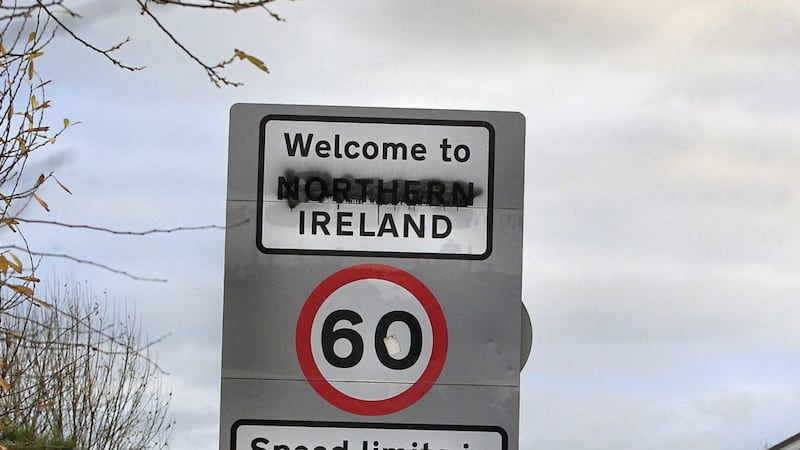The prospect of a no-deal Brexit is suddenly receding, so will demands for a border poll recede? Of course not.
Sinn Féin has been calling for a poll since 2012, when Brexit was just a twinkle in Nigel Farage’s eye and nobody believed such a poll could be won. Sinn Féin’s move was provoked by the brief prominence of a dissident republican campaign for an all-Ireland vote, based on deriding the Good Friday Agreement model of separate votes north and south as a unionist veto - “a planter’s poll”, as it was dubiously described.
Now that Brexit has shifted demand for a poll to a different plane, it is worth recalling how little pressure from the fringes it took to put it on the agenda. Sinn Féin has been careful to qualify its calls for an “immediate” vote to a no-deal scenario and the British government has done the same with its clumsy cabinet ‘leaks’, aimed at pressurising the DUP. However, an immediate vote was always a mirage - it takes at least 18 months to arrange a constitutional referendum in the Republic on even the simplest question.
Removing no-deal from the table will not remove the years of Brexit grief that still lie ahead, further exhausting nationalist patience with the union and keeping demands for a poll to the fore.
For years to come, however, this will occur against the background of certain nationalist defeat. No opinion poll has found majority support for unification under any Brexit outcome other than no-deal. Even that finding was hypothetical and the company behind it told the Irish Times last October there is still “no basis” for a border poll under the Good Friday Agreement, which requires a nationalist victory to appear likely. Labour’s shadow secretary of state for Northern Ireland has said the same, as has the Irish government.
So the demand for a poll will drop back to a frozen conflict: nationalism will continue to see it as politically justified, while unionism and both governments will insist it is legally unwarranted. This stand-off will then chill everything else, most obviously the restoration of devolution.
Superficially, one rational response would be for unionism to also demand a border poll in the hope of defusing the issue. This would be outside the terms of the agreement but the secretary of state is free to hold a poll in Northern Ireland alone at any time for any reason. That vote could be organised relatively quickly, while a demand from both Sinn Féin and the DUP would be difficult to refuse.
Queen’s University Belfast professor Colin Harvey, the leading civic nationalist proponent of a border poll, says the mere existence of a poll mechanism in the agreement justifies a speculative vote to test the appetite for unity due to Brexit. Harvey adds it is offensive and undemocratic to deny nationalists this option by claiming, as the DUP does, that it would be “divisive and destabilising”.
However, unionism has a legitimate concern. The fact that republicans sought a poll long before Brexit points to bad faith and deliberate pot-stirring. The agreement’s stipulation of polls no more often than every seven years is plainly perceived by nationalists to mean a poll every seven years, which would only keep the pot boiling.
This is the fear Peter Robinson addressed in his Queen’s University speech last June, when he proposed “fixed generational polls” with “generational settlements” between.
Nationalists accused the former DUP leader of moving the agreement’s goalposts but that charge was incorrect. Unlike suggestions to raise the 50 per cent plus one threshold of victory, as made by Taoiseach Leo Varadkar among others, Robinson merely proposed agreeing that ‘no more than every seven years’ be something closer to 20 years.
It would fall to unionism to propose a settlement that nationalism might consider worthwhile. A stable period for reconciliation and planning would fit the Dublin and SDLP vision of unification, although it is clear that broader northern nationalism would have to be offered significant changes in the interim.
The prospect of the current DUP leadership managing this is zero. But the DUP could be under new management shortly, chastened by a Brexit climbdown and growing Westminster marginalisation.
As with Brexit negotiations, there is a conundrum of sequencing. In which order should a unionist offer, a nationalist verdict and a poll be considered?
However, there is no question the above in some combination is the only way to turn expectations of a border poll away from confrontation to compromise.
newton@irishnews.com









